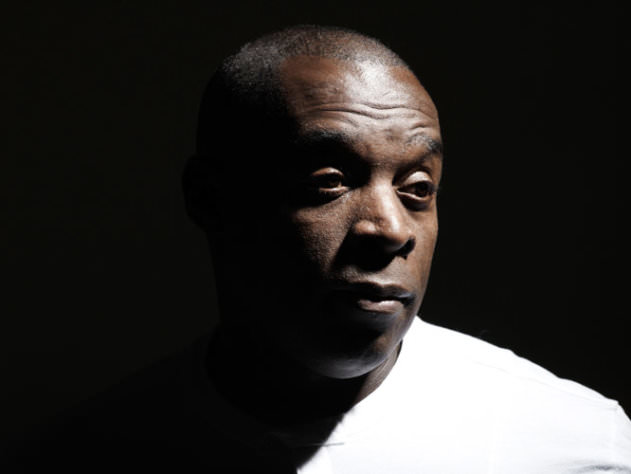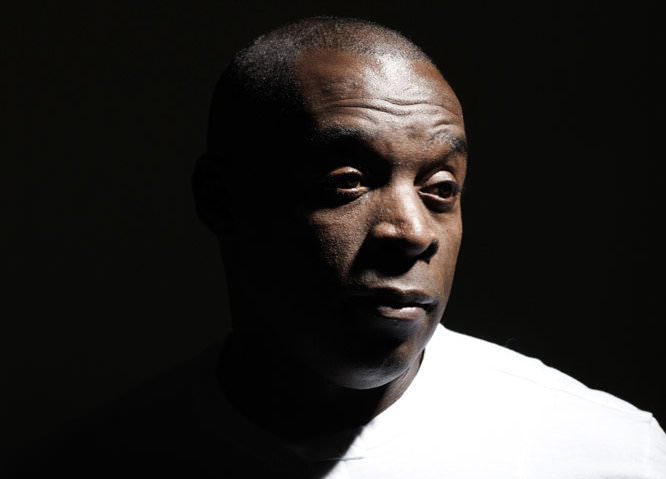Attack editor Greg Scarth meets Kevin Saunderson to discuss the globalisation of dance music, hidden samples in Inner City records and the secret to handling Derrick May.

Having played such a pivotal role in the development of dance music, you’d forgive Kevin Saunderson for being proud of his achievements, but despite his obvious success he remains humble. Discussing the fact that two of his late 80s singles sold over two million copies each, he qualifies the incredible figure by pointing out that it’s only true if you count vinyl, cassettes and CDs, as if that’s somehow less remarkable.
Having just flown in from Ibiza with his son Dantiez, Kevin meets us in the bar of his London hotel, orders a pot of tea and sits down at a corner table. He’s here to DJ, but as always he currently has a number of other projects on the go, including the recent relaunch of his house project Inner City with the release of ‘Bad Girl’, a tribute to Donna Summer. With an album under way and plans to go out on tour in the near future, we took the opportunity to have a long conversation about everything from parenting techniques to pizza.
Attack: When we were chatting by email before the interview I asked about topics you might like to discuss and most of your answers related to travel in some way. So you’re still excited by travelling after all the years on the road?
Kevin Saunderson: Yeah. When I grew up I never imagined that I was gonna be a traveller of the world. It just wasn’t on my radar. There’s the downside of it when you’re away from the family but it’s a world outside of my world and it’s uniquely different when you travel outside your own home.
For some DJs it quickly becomes a chore. There’s that saying that you don’t get paid to play, you get paid to travel.
[Laughing] I just said that for Naples. I hadn’t been for a couple of years and I really wanted the pizza. I was like, ‘Don’t worry about the money, just gimme the pizza’.
We all talk about Detroit techno and the characteristics of that city’s music, but you see it from the opposite perspective. When you travel do you see places that you think really have a distinct character?
Definitely. I think of Tokyo, right away. It’s definitely got its own character. It’s kind of like Blade Runner. Lots of people, very hi-tech, very polite, very hospitable and courteous. And then the parties, when you play they scream. They scream a lot. Not like every now and again hands up in the air, but almost every time you’re in the mix they’re screaming and jumping.
I think Holland, too. Amsterdam and everything that goes around it, the coffee shops. When I categorise or try to link something I link those type of things to places like that.
When I grew up I never imagined that I was gonna be a traveller of the world. It just wasn’t on my radar.
Do you find differences in the types of music people respond to from one country to the next or one city to the next?
I think in the beginning it was more like that. It was like, Germany was into very industrial-sounding techno at one point, right? If you wanted to play a house record or something that was not as hard or driving, you had to find pockets – it wasn’t popular.
It was a few countries that were like that in the beginning but I never liked that, to be truthful, just because I always thought you should tell a story with your music. You shouldn’t have to go play just techno, just house, just deep house, you know? I always thought it was good to play a variety of music, as long as you liked it and could tell a story with it and elevate the crowd.
But in general now I think it’s more diverse everywhere. I remember Belgium, at the beginning they was into something called… What was it called? New…
New beat.
Right. So you had these different pockets even then. The crowd would get educated towards that sound and it would become popular but a lot of that stuff eventually faded away because it didn’t have the balls, you know?
In the beginning if you wanted to play a house record in Germany you had to find pockets – it wasn't popular.
Yeah. I can see why more open-minded crowds would definitely suit you. Why do you think things have become more open? Do you think there’s a reason for it?
I think it’s just social media. People connect a lot easier. Just think about back in the day when DJs had to use vinyl, nobody knew the names of vinyls. Now you got programs that can tell you what people are playing, you got SoundCloud, you got all these different social media avenues that help people be one. It helps the world dance as one, you know? You might like this style or that style, but you can find a track that you might not have known, find out about the artist, find out about the DJ. I think that’s helped.
Everyone around the world downloading the same mixes from the same websites.
Definitely. Hey, let’s be honest: people don’t really buy music any more. They go to parties, they go to events and DJs buy music but regular crowds… I don’t think they buy music. But they still like it, they share it, they go to SoundCloud.
Your career’s coincided with the shift in those consumer patterns. What were your biggest selling records? How many copies of something like ‘Good Life’ did you sell?
I know ‘Good Life’ and ‘Big Fun’ sold over two million copies each, but I’m sure that’s a combination of 12-inch, cassette, CD…
Sure, but come on – it’s two million!
Yeah, yeah. Each of those went over two million. ‘Good Life’ more than ‘Big Fun’, too. Maybe 200,000 more sold. Those were my biggest sales from single records.

05.36 AM
Top bloke!
06.45 AM
Some great insights. Thx
05.29 PM
Definitely the nicest and most grounded of all the Detroit guys. Class act all the way around. So glad he’s continued with the Inner City project.
03.31 PM
I’d go to Naples just for the pizza too. I think I’ll be playing his E-Dancer stuff until the day I die.
01.56 PM
Never heard of this guy before, glad I do know him now!
11.09 AM
Yea great interview! Love this mag.